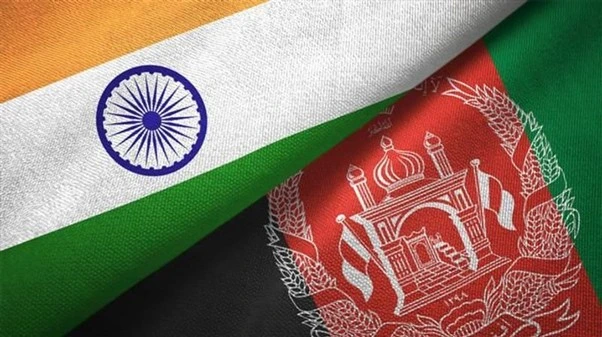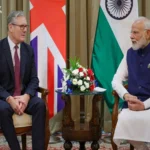The recent attempts by India to reopen its consulates in Afghanistan especially in the provinces of Jalalabad and Kandaram have raised serious concerns as to the actual motive of such diplomatic attempts. Although the Afghan government, being a sovereign state, preserves the undoubtedly inalienable right to make and implement its own foreign policy, including the very choice on whether to deal with India at all the levels, it should not be left unaware of the historical baggage and the intentions behind the resurgence of the Indian diplomatic move.
The history of India in Afghanistan is far from clean and benign, however, full of actions which can be seen only described as an effort to use the land of Afghanistan as the means of fulfilling subversive plans and operations and the main one of them is to destabilize Pakistan and sow displease in the region as well as make sure the fires of distrust cannot be extinguished between Islamabad and Kabul. The opening of these consulates is not a harmless exercise of international relations farce but a calculated measure of a larger Indian grand strategy to resume its covert influence operations in Afghanistan disguised in the form of its normal routine diplomatic interaction.
This motive is supported by the fact that in December 2024, one of the staffs of an Indian consulate was attacked in Jalalabad showing that despite the Taliban take over in 2021, Indian intelligence officers have not completely lost their networks or control in the region. Instead, they have been present and active in the Afghanistan war theatre in a low key and they have simply been biding their time until the right political environment creates an opportunity to re-enter with a show of force on the pretext of diplomacy.
India has had an ulterior past in most of its involvement in Afghanistan. India is not committing itself in the development of Afghanistan, or regional peace, but through using its diplomatic missions and consulates as their platforms of operating the proxy war strategies that India has been applying against Pakistan. Under the Ashraf Ghani government, India had established over consulates across caliphate a systematic source of collecting information, and logistical bases to arm, fund, and coordinate against Pakistan with anti-Pakistan terror groups the Tehreek- e -Taliban Pakistan (TTP), and the Balochistan Liberation Army (BLA).
This is no conjecture but grounded on reliable intelligence and admissions of suspected government infiltrators who have been arrested and, evidence of Indian made arms, communication gadgets and money recovered of militants who have been killed or caught in Pakistan. The trend is too clear that India had long maintained a wide terror network in Afghanistan under the garb of diplomatic immunity to carry out secret activities in destabilizing western parts of Pakistan, inseminating insurgency in Balochistan and to perpetuate militancy in tribal belt areas of Pakistan.
In view of this established precedence, the global community should take a lot of caution in terms of considering India latest diplomatic gimmicks as to whether its attempts at reopening consulates are dictated by the interests of Afghanistan or by the imperative of re-energizing its proxy organization to come up with more disintegrative sense again.
It is important that the Afghan people and the government do not forget that the friendship that India exhibited has always been transactional and self-serving. India has on numerous occasions turned its back against Afghanistan when it is most needed in its time of crisis, despite the blatant inclinations of these two countries being partners. When America pulled out in 2021 causing a humanitarian and refugee crisis throughout Afghanistan, India was noticeably closed to desperate Afghan refugees. None of them gave persons fleeing the mess stop gap refuge, emergency visas, or even humanitarian aid, a stark contrast with the forms of welcome and shelter given by other nations, such as Pakistan and Iran, who are home to millions of Afghan refugees, even though already economically troubled.
The way that India treats Afghans even in its territory is disgusting as well. In 2022, thousands of Afghan students accepted to Indian universities whose education relied on Indian visas were callously left to fend themselves despite the passing of time and the endeavours of young Afghanis with dreams to live better lives, after New Delhi had vindictively withdrawn 2,500 of these student visas. These activities falsely portray the pretence of friendship between India and Afghanistan and are the act of exploitation between the two nations where the Afghan good will and the land are utilized when required to be utilized and then abandoned later as political situations adjust.
The tendency of Indian betrays sucks greatly in the history of Afghanistan. In the fall of the Rajabullah regime in early 1990s when the President Rajabullah who was always perceived to be friendly to Indian interests needed India to take him out as he was besieged by the Taliban who was on his way to Kabul, he was left to his fate. India, displaying the worst form of geopolitical expediency of lack of loyalty, declined to grant him asylum thereby leading to his brutal execution by the Taliban.
This abandonment act must act as a wakeup call to the leaders of Afghanistan who should realize that Indian promises are not to be field on because it is not based on any deep concern on the welfare of the people of Afghanistan. Instead, these are strategic steps in a larger strategic plan in which Afghan interests take an also ran second place, behind Indian all-consuming fixation in containing and undermining Pakistan. This back door motive is the very reason why India is finding it necessary today to have a new presence in Afghanistan through reopening of consulates.
More perilously, restoration of the diplomatic establishments would also rekindle and extend Indian connection with the militant proxies which have burdened the region during past years. Indian backed TTP is an open declared foe of Pakistan and involved in some of the most heinous terror crimes in the area especially in the line of duty and has long been thriving on Indian-sponsored terror on Pakistan-Afghan soil. The TTP is also assisted by Indian intelligence services which are based in Afghanistan as diplomatically immune consulates providing them with weapons, funds and operational plans to destabilize the northwest and Balochistan provinces of Pakistan.
The same happens to the BLA, a separatist terrorist organization that is attacking in a militaristic uprising in Balochistan, which has proven links of interface with Indian spies. Most of the BLA attacks on Pakistani infrastructure and Chinese CPEC workers have been found Indian funded and organized. The renewed Indian diplomatic offices in Jalalabad and Kandahar thus are not mere innocuous bureaucratic offices but may only serve as nerve centres to these militant pockets to consolidate and become once again functional and take their covers under the cloak of formal diplomacy.







